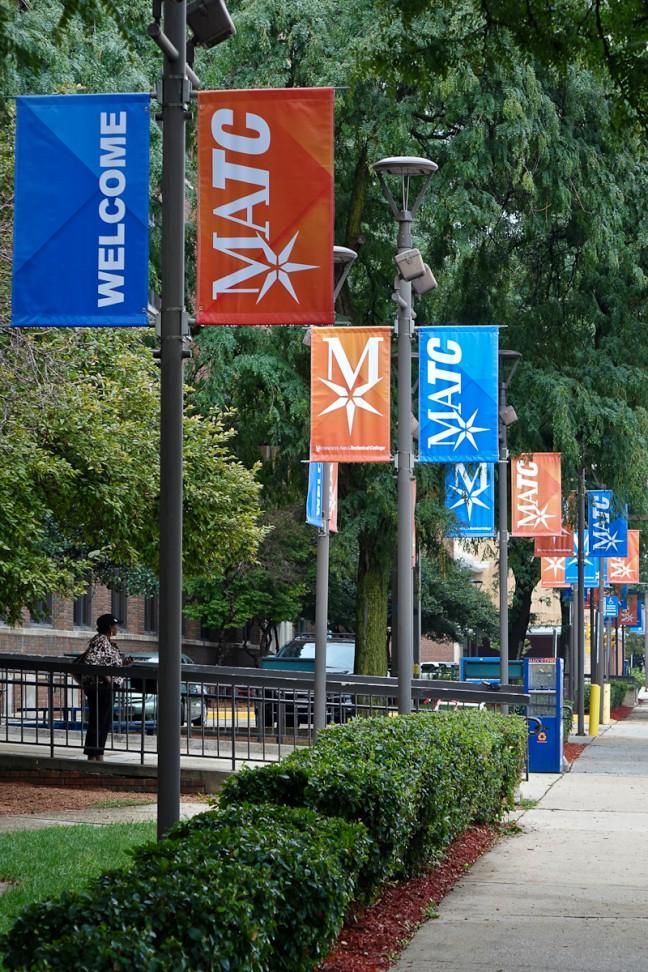Free two-year college is a hot topic nationally and Wisconsin needs to get on board before it’s left in the cold.
In January of this year, President Barack Obama called for free community college across the U.S. modeled after the Tennessee Promise, a program offering free community college to Tennessee high school graduates.
Oregon made waves by announcing a similar program over the summer. Most recently, and closest to home, Milwaukee Area Technical College announced the MATC Promise.
This program, which would offer free tuition to low-income graduating high school students, is tremendous news for people who want to see economic growth and increased access to education.
Milwaukee can certainly benefit from increasing access to higher education. Currently, 83 percent of Milwaukee Public School students qualify as low-income, which presents a huge hurdle to anyone wanting to continue their education.
With state dollars continuing to siphon from the state’s largest school district to wealthier communities in the suburbs, the MATC Promise could be a catalyst for thousands of individuals to break out from a cycle of poverty. Wisconsin should follow MATC’s lead and institute a “Wisconsin Promise” at all two-year University Wisconsin colleges.
Last fall, I called for a bipartisan effort to create a Wisconsin Promise modeled after the Tennessee Promise. After all, Tennessee is also governed by a conservative Republican governor who was one of the strongest backers of the new program as an engine of economic growth.
Republicans should make ‘The Wisconsin Promise’ a reality for students
If Republican-led Tennessee can support more inclusive and expansive higher education in the name of economic growth, why can’t Wisconsin?
To be clear, a Wisconsin Promise program already exists but it is separate from these calls for free community college. For the sake of rhetorical consistency, I use Wisconsin Promise to refer to a hypothetical new program.
Since the introduction of the Tennessee Promise, the results make the case for a Wisconsin Promise even clearer.
In the first year of the Tennessee Promise eligibility, Tennessee schools saw a sharp increase in both raw enrollment numbers and in the number of students who are registered for a full course load, which is a significant indicator for sustained and consistent academic success.
With many of the UW System’s two-year institutions located in rural or economically depressed areas, this increase in enrollment would be a boon for both the students and the communities to develop skills and education needed for economic growth.
Regardless of your opinions toward two-year degrees, research shows there is significant added value for students who obtain an associate’s degree before transferring to a four-year institution.
The degree stands on its own as a substantial benefit compared to just earning a high school diploma. As Republicans have been arguing for years, we need more graduates of community and vocational colleges.
The biggest hurdle to a Wisconsin Promise, however, remains the general Republican hostility to all education-related expenditures that don’t go to vouchers or charter schools. This is a subject void of all sensibility and rationality in favor of delusional arguments over tyrannical teachers and bureaucrats.
This shouldn’t be a partisan issue. The cost is minimal and since it is a ‘last dollar’ program, funds will only cover what other programs do not.
Additionally, there are requirements built into the program to ensure recipients are performing well and focused on their studies. This should be good news to Republicans who have spent a good deal of time making sure recipients of state aid are being constantly monitored for any signs of excess or waste.
Seriously, this could happen in Wisconsin, but it won’t until people from across the state start asking for it. I encourage you to write to your assembly representative and state senator — you can find yours here — and ask them to support a Wisconsin Promise. It’s a promise we can’t afford not to make.
Adam Johnson ([email protected]) is a master’s candidate at the La Follette School of Public Affairs.














